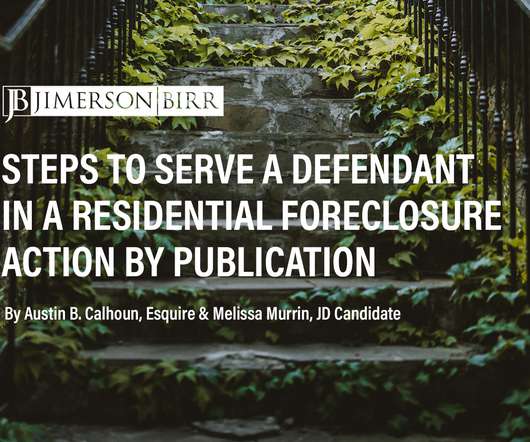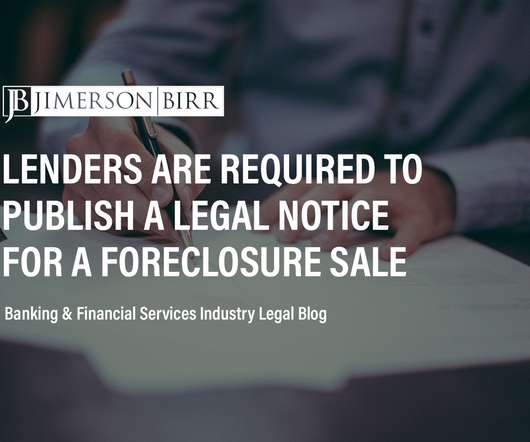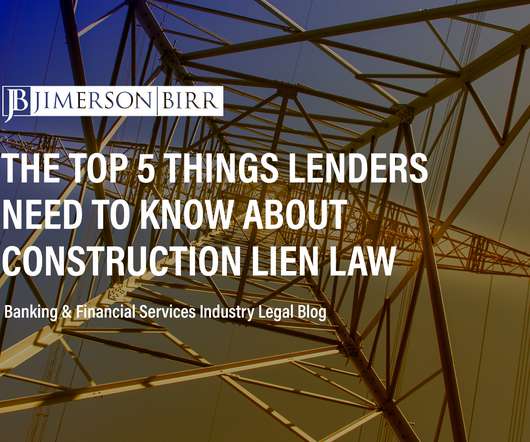Serving a Defendant in a Residential Foreclosure Action by Publication
Jimerson Firm
SEPTEMBER 28, 2020
A residential mortgage foreclosure action is initiated in Florida by filing a verified complaint with the appropriate court. If a defendant cannot be located, then service may be effected by constructive service, i.e., service by publication, which is governed by Chapter 49, Florida Statutes. 49.08, Fla. 1)(c), Fla.












Let's personalize your content